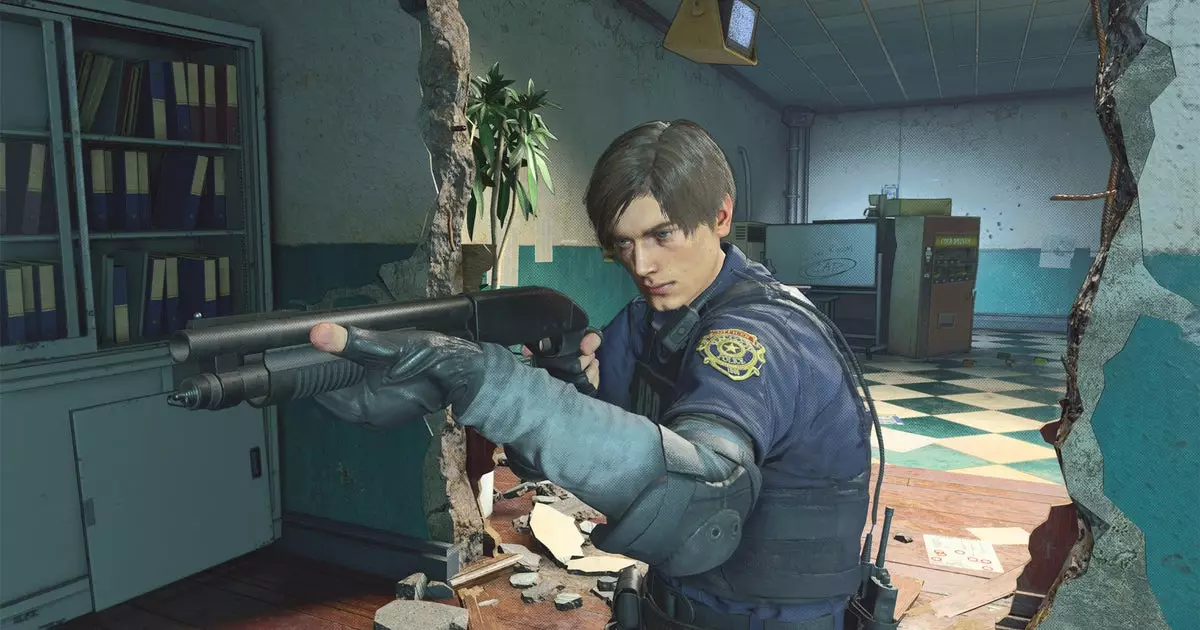The history of Resident Evil has been a storied one, marked by iconic single-player experiences that have redefined the survival horror genre. However, in recent years, Capcom’s foray into multiplayer territory has been nothing short of tumultuous. The shocking announcement of Capcom shuttering Resident Evil Re:Verse reminds us yet again of the perils that accompany their bold but often misguided attempts to transition into multiplayer gaming. This decision caps a journey riddled with unmet expectations, revealing a deeper issue at play in the company’s residential online ambitions.
Launched as part of the 25th anniversary celebration of the franchise, Re:Verse was intended to invoke nostalgia, bringing together beloved characters and classic gameplay elements. It evidently failed to strike a chord with audiences, evidenced by a maximum player count peaking at just 2,080 concurrent users on Steam. While that number might evoke fleeting memories of the franchise’s glory days, it is far from the competitive benchmarks set by other popular titles in the online shooter genre. The stark contrast between its humble player base and titles like Counter-Strike underscores a fundamental disconnect between Capcom’s vision and the expectations of modern gamers.
Revisiting the Multiplayer Quest
Since 2003, when Capcom first ventured into multiplayer with Resident Evil Outbreak, the developer has experimented with varying degrees of success. That initial attempt foreshadowed a protracted struggle to integrate cooperative elements into the Resident Evil universe, leaving many fans wondering whether multiplayer was an avenue worth exploring at all. In retrospect, Outbreak was a promising concept ahead of its time; however, the age of dial-up internet left much to be desired, and the execution ultimately fell short.
As Capcom continued to chase trends, titles like Resident Evil: Operation Raccoon City emerged as lackluster attempts to capitalize on the growing appeal of cooperative gameplay. Descriptive summaries likening these offerings to “grindingly unenthusiastic” experiences highlight a fundamental flaw in Capcom’s approach: the games often felt more like obligatory additions rather than genuine attempts to innovate within the genre. Unfortunately, weak narratives and uninspired gameplay have led to a legacy of mediocrity in Resident Evil’s multiplayer offerings, and Re:Verse is merely the latest victim in that long line.
The Spark of Hope in Future Titles
Despite the dismal fallout from Re:Verse, Capcom continues to experiment in the multiplayer arena. Insights from recent developer interviews regarding Resident Evil Requiem indicate that while the company may have strayed from their original path, they’re still willing to innovate. The move to focus on a premise involving survival in a hotel filled with unrelenting threats is a pivotal moment. It suggests that Capcom is learning from past mistakes and may be stripped down to the core elements that drove the franchise’s success in the first place.
Additionally, the shift in focus to singular experiences may align more seamlessly with fan expectations. By concentrating on suspenseful and atmospheric gameplay, rather than attempting to force multiplayer mechanics that fail to enhance the Resident Evil experience, Capcom may finally rekindle interest and loyalty among their core fan base.
Lessons Learned and Uncertain Futures
The course taken by Capcom in their quest for multiplayer success underscores a significant lesson in game development: innovation must be thoughtfully aligned with the intrinsic characteristics that define a series. Resident Evil’s success has always stemmed from its intense atmosphere, haunting narratives, and complex characters. Sacrificing those critical elements for the sake of entering a saturated multiplayer market may only dilute the magic that players hold dear.
While Resident Evil Re:Verse has met its demise, and its failure may serve as a cautionary tale, it’s essential to remain hopeful. Capcom’s willingness to return to the drawing board is commendable. However, whether they can surmount the hurdles that have beset their multiplayer projects remains to be seen. The road ahead may be uncertain, but one thing is clear: long-time fans will be watching closely, eager to see how the franchise will evolve while staying true to its compelling roots.

